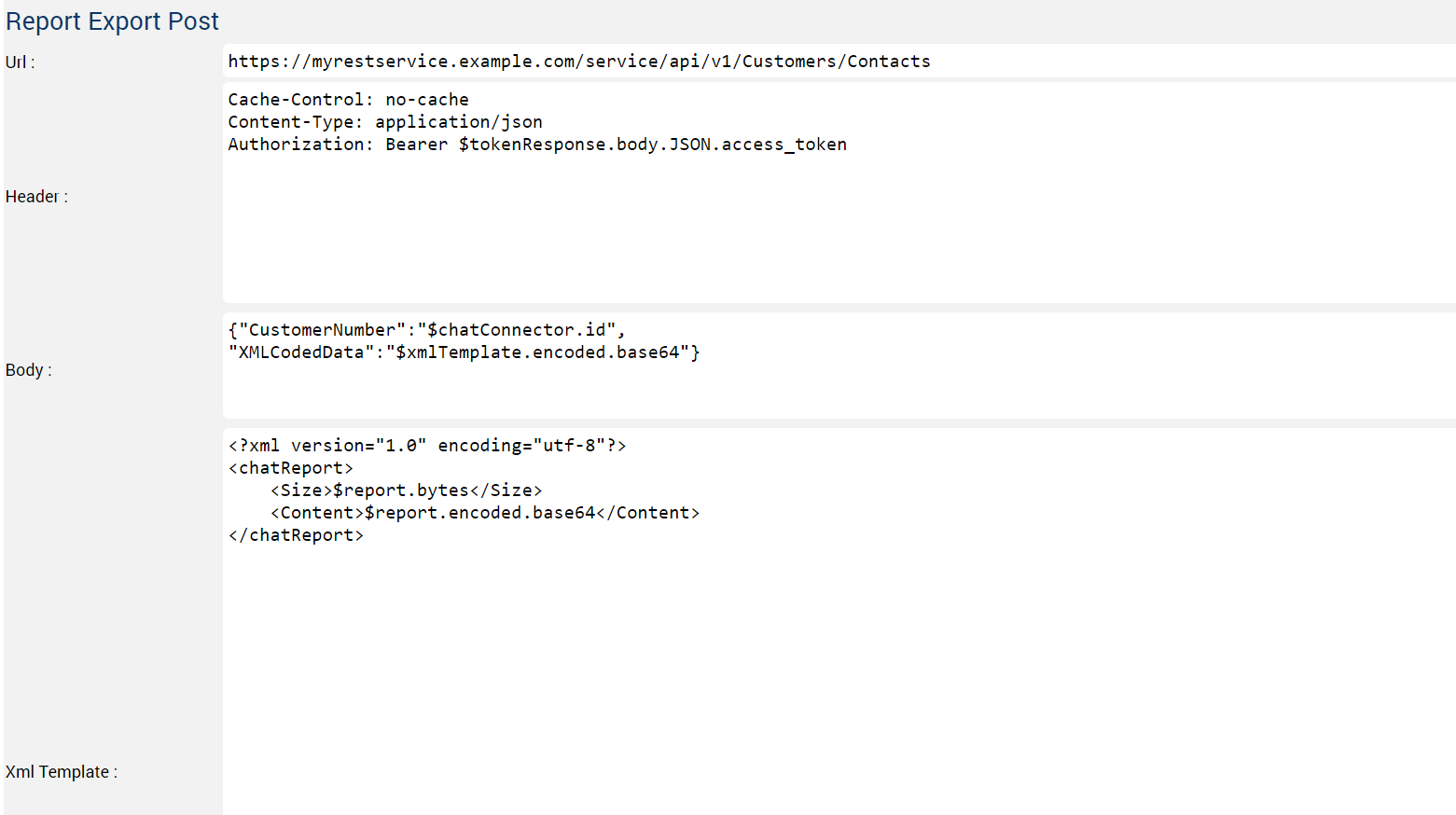The chat report export is a REST service that exports chat sessions from jtel to an external system.
The report export can be initiated manually by agents in the chat session, using the Report Export button:
Notes: this requires the implementation of a REST service by the customer on the customer back-end system. The report export button will only appear, if the URL is configured in the Report Export Post parameters.
The configuration of the report export is performed in the Chat Connector configuration, on the REST tab.
Phase 1 - Token Post
Phase 1 is used to acquire an access token for the operation.
Note: This is not necessary if a token is not required, and all necessary information can be provided in the second post request.
URL
This is the URL to which the post request to acquire the token should be sent.
Header
This part specifies the headers which should be sent with the request. Any necessary headers can be specified here.
Body
This part specifies the body which should be sent with the request. Any necessary body can be specified here.
Phase 2 - Report Export Post
The second phase posts the PDF report containing the chat session to the backend system.
Any data can be specified in the body.
URL
This is the URL to which the report post should be sent.
Header
Specify any headers required here. The token retrieved in the first step can be specified, for example, with $tokenResponse.body.JSON.access_token
Body
Specify the body of the post request here. The XML template can be inserted into the body as base64 coded data using the variable $xmlTemplate.encoded.base64
Xml Template
This template can contain any data, which will be base 64 coded into the body when the variable $xmlTemplate.encoded.base64 is used.
Variables
The following variables are provided, which can be used in either of the requests:
| Variable | Meaning |
|---|---|
| $ClientsID | The ID of the client account. |
| $chatConnector.id | The ID of the chat connector. |
| $chatConnector.name | The name of the chat connector. |
| $tokenResponse.body.JSON.access_token | The access token returned by the token post. |
| $report.encoded.base64 | The encoded PDF data as base 64 encoded data. |
| $report.bytes | The number of bytes in the encoded report PDF data. |
| $dateTime | The current date and time in the format yyyy-MM-dd HH:mm:ss |
| $xmlTemplate.encoded.base64 | The XML template encoded in base 64 format. |
| $pdata.* | Where * is any variable from the pdata configured in the chat connector. Example: pdata: {name:'John Doe', email:'john.doe@example.com'} $pdata.name will be equal to 'John Doe'. |


